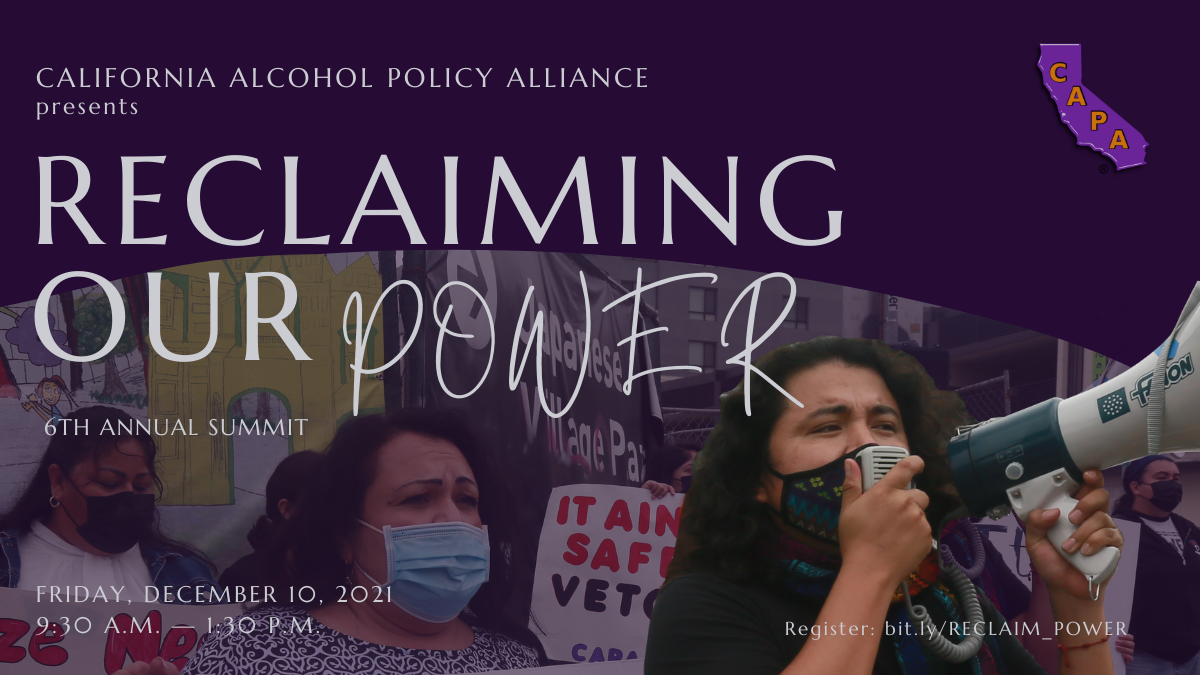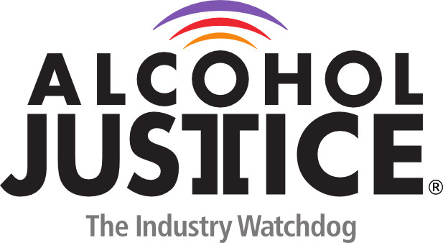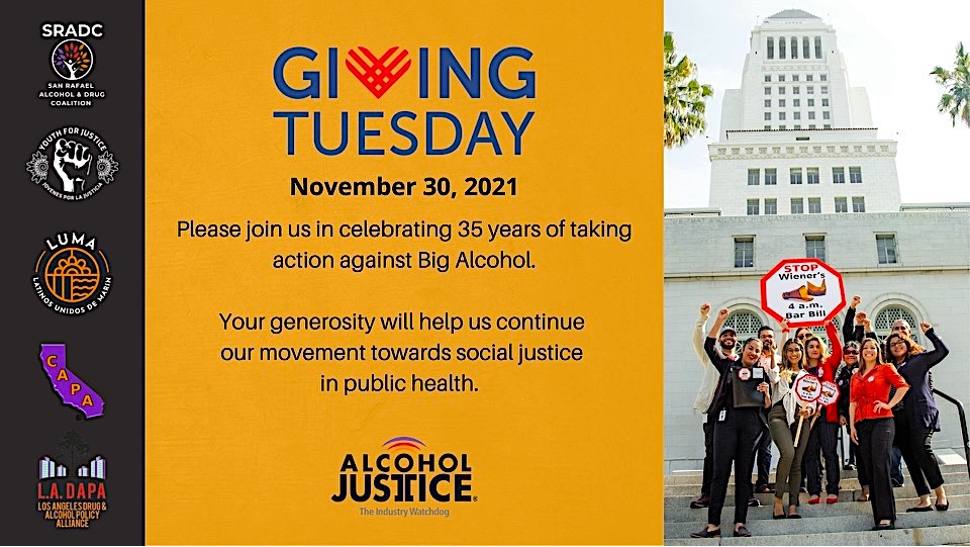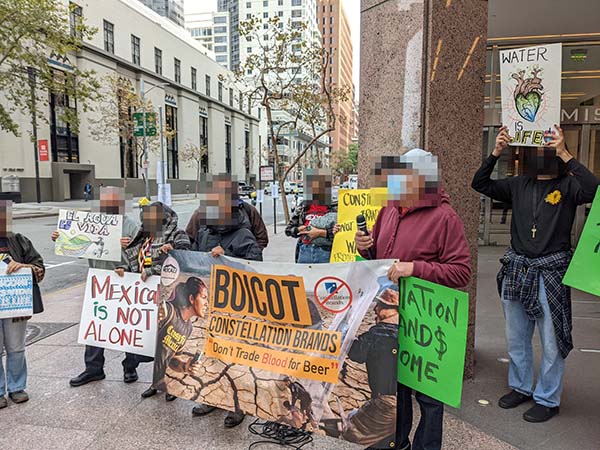Blog
NFL, ABI Walk Hand In Hand Over Players and Fans
 If alcohol money is the lifeblood of the NFL, it is also an open wound on the game.
If alcohol money is the lifeblood of the NFL, it is also an open wound on the game.
The Super Bowl is inextricably linked with drinking, in no smart part due to the efforts of Big Alcohol. Anheuser-Busch InBev (ABI), the brewing giant behind Budweiser, Bud Light, and scores of other brands, has poured hundreds of millions of dollars into the league to become the exclusive beer sponsor for the Super Bowl. That privilege does not just come with outsized control over advertising, it comes with the ability to reshape the narrative of the event around its sponsors.
Yet however the NFL has benefitted from beer money financially, this season was thoroughly tainted with alcohol-related harm. In November, Raiders wide receiver Henry Ruggs III, driving while intoxicated, fatally crashed into another vehicle. (Last week, a Washington player was also involved in a fatal crash, but it is not clear whether or not alcohol was involved.) Ruggs III was the latest in a line of NFL players involved in fatal DUIs; counting nonfatal events, he is the sixth player this season.
https://www.nfl.com/news/prosecutor-former-raiders-wr-henry-ruggs-iii-driving-over-150-mph-before-fatal-c https://www.nbcsports.com/bayarea/49ers/how-nfl-has-handled-players-accused-dui-resulting-death https://databases.usatoday.com/nfl-arrests/NFL teams do have a set standard for punishment of nonfelonious DUI, a three-game suspension. However, it is not clear what preventive resources are available, or mandatory. This is not just important from the perspective that prevention is always more powerful than punishment. The NFL is still contending with the fallout from decades of undiagnosed, untreated traumatic brain injury—particularly chronic traumatic encephalopathy (CTE)—among its current and former players. Although the physical damage to the brain producing CTE comes from hard contact during football games, research shows that alcohol use dramatically worsens the symptoms of CTE—even if the alcohol use was prior to the trauma event. The outcomes from CTE are frighteningly stark: executive functioning issues, depression, suicide, and dementia.
But just as the NFL had spent decades glossing over the damage caused by alcohol to its players, it remains happy to ignore the harms to fans. Super Bowl Sunday is consistently among the deadliest driving days of the year. Reports from BACTrack, makers of consumer breathalyzers, showed its users were almost as likely to report a BAC over 0.9 on Super Bowl Sunday as they were on New Year’s Eve. And this ignores the fights and crashes that have become so commonly associated with football games that they are brushed off
Nonetheless, the hype machine for this Sunday’s ad campaigns is already in full swing. Among the “highlights”:
• Fresh off a grotesquely misleading charade in which it claimed to be donating its ad time, while actually pulling only one of its many products from the lineup, ABI continues its trend of profiteering from emergency with an ad showing a signature Budweiser Clydesdale returning from a year-long injury. (The COVID-19 pandemic is far from over and alcohol use exacerbates risk and symptoms.)• The “kiddification” of products continues as Bud Light introduces a “hard soda” line, promoted through a fantasy-themed ad featuring Guy Fieri.
• The growing desperation to portray alcohol as “healthy” continues as ABI leans heavily into a “zero-carb” seltzer (alcohol itself contains calories) as well as its athletics-branded Michelob line.
• In a late contender for missing the point of… everything, Boston Beer, the brewers of Sam Adams, have a regional buy co-branded with Boston Dynamics, a literal defense contractor. The ad combines security guards drinking on the job with robots akin to the ones that have been used to harass residents of Manhattan housing projects. It is a true tour-de-force of making money while whitewashing the military industrial complex.
The result is an embarrassment of contempt for the NFL’s employees and fans. It is time to Free the Bowl. Get the toxic impact of Big Alcohol’s money out football, and maybe we can keep our football heroes out of jail.
READ MORE about our campaign to FREE OUR SPORTS®.
READ MORE about AB InBev’s sleazy COVID-19 ad “donation”.
READ MORE about the blitz of youth-oriented alcopops in NFL ads.
CAPA 2021 Summit Schedule & Speakers

The 6th Annual CAPA Summit is coming this Friday, December 10. Our theme this year is Reclaiming Our Power: from corporate interests, from disinterested legislators, from embedded systems that have for too long prioritized profit over health, safety, and life.
Join fellow advocates, community members, researchers, and organizers in a celebration of struggles past and inspiration for those to come.
The event is free and open to the public.
You can REGISTER HERE or click "read more" to see the schedule and speakers.
#GivingTuesday 2021: Join the New Face of Alcohol Justice

#GivingTuesday—the global day of giving—is here!
November 29, 2021
Dear Friends and Allies,
I'm Cruz Avila, the new Executive Director at Alcohol Justice. I've only been part of the Alcohol Justice work family since September of this year. But the organization has been working nonstop for 35 years, taking action against a rapacious industry that preys upon the disadvantaged, the marginalized, and those too young to see beyond the seductive marketing of truly dangerous products.
I am honored and blessed to join these efforts to reign-in Big Alcohol by taking decisive actions that place the health and safety of our vulnerable communities above industry profits.

On November 30, 2021, we ask for your help in supporting this important work. Contributions on #GivingTuesday launch a season of giving that will help support our efforts in the new year. Please consider joining us by:
1) Making a charitable gift on November 30th through the Alcohol Justice Donation Page
2) Learning more about Alcohol Justice campaigns and projects
• California Alcohol Policy Alliance (CAPA)
• Youth for Justice
• .05 Saves Lives
• Los Angeles Drug and Alcohol Policy Alliance (LADAPA)
• Free Our Sports
• Proyecto Latino TAM
• Native Americans Take Action
3) Signing-up for Alcohol Justice eNews and Action Alerts
4) Following and friending Alcohol Justice on our social media platforms
• Facebook - @AlcoholWatchdog
• Twitter - @AlcoholJustice
• Instagram – @alcohol_justice
• YouTube - @AlcoholJustice
I'm deeply grateful to be here and for your interest and generosity. By joining with us on #GivingTuesday, we will move forward together to hold Big Alcohol accountable for damaging public health and diminishing social justice.
From my work family and my personal family to yours, best wishes for peaceful holidays and a kinder, more equitable new year,

Cruz Avila
Executive Director
Alcohol Justice
VEA una mensaje especial de Cruz Avila, Directora Ejecutiva de Alcohol Justice.
WATCH a special message from Alcohol Justice Executive Director Cruz Avila.
Thirst for Justice: Mexican Communities Fight Big Alcohol's Water Takeovers
UPDATE 11/17: Charges against the Mexicali Resiste activists were dismissed again. However, the Baja California government has not cleared them of all charges, and they could be again brought to court. Alcohol Justice continues monitoring this situation and similar ongoing struggles of indigenous and local communities in northern Mexico to end Big Alcohol's water extraction practices.
 On November 9th, Mexicali Resiste led dozens of activists, including representatives from Alcohol Justice, in a march on alcohol giant Constellation Brands to save three compatriots from dubious charges filed in Mexican court. These charges stem from Mexicali Resiste’s work four years ago to prevent Constellation, a U.S.-based corporation with offices in San Francisco, from acquiring exclusive water rights in the drought-stricken Mexicali Valley. This trial is just the latest salvo in an ongoing struggle against Big Alcohol’s takeovers of dwindling aquifers, a struggle that already has a body count. The trial is currently scheduled for the 16th of November.
On November 9th, Mexicali Resiste led dozens of activists, including representatives from Alcohol Justice, in a march on alcohol giant Constellation Brands to save three compatriots from dubious charges filed in Mexican court. These charges stem from Mexicali Resiste’s work four years ago to prevent Constellation, a U.S.-based corporation with offices in San Francisco, from acquiring exclusive water rights in the drought-stricken Mexicali Valley. This trial is just the latest salvo in an ongoing struggle against Big Alcohol’s takeovers of dwindling aquifers, a struggle that already has a body count. The trial is currently scheduled for the 16th of November.
“We can’t pretend that alcohol harm is just a physical thing that happens to drinkers,” said Cruz Avila, Executive Director of Alcohol Justice. “When Big Alcohol gets involved, it becomes economic harm. Political harm. It’s another incarnation of the oppression and exploitation that has cast a long shadow over the US and its neighbors.”
The San Francisco march was held to call for a boycott of Constellation and demand the company use its outsize influence—it is currently in negotiations with Mexican President Andres Manuel Lopez Obrador’s administration to open a new factory elsewhere in Mexico—to get the charges against Mexicali water protestors dropped. The group, which brought together both Mexico- and US-based organizations, peacefully occupied the sidewalk in front of the 101 Mission St. building where Constellation is housed, letting the affected members have their voices heard.
“We ask Constellations Brands to stop their plans to build gigantic breweries in water starved regions,” said Brenda Villanueva, Program Director at Pueblo y Salud. “This precious natural resource would best be used by the people for drinking and growing food instead of making more alcoholic beverages that are saturating and harming our youth and other members of our community.”
In 2015, the governor of Baja California awarded Constellation Brands rights to draw from the aquifer in Mexicali in service of a new factory. Details of the contract were shrouded behind confidentiality clauses, but the plant was expected to produce over 4 million bottles of beer and experts estimated it would have consumed as much as 25% of the available water reserves.
“We denounce the criminalization of the Mexicali Resiste Activists for choosing to protect the most sacred element for survival and a dignified quality of life – WATER,” said Mayra Jiménez, Advocacy Manager at Alcohol Justice. “We denounce Constellation Brands for commodifying water in a region that is experiencing severe water shortage. This is an environmental catastrophe.”
Local outrage peaked in 2017, when over 12,000 residents of Mexicali took to the streets, including the members of Mexicali Resiste who now stand trial. Following the protests, they were charged with “dispossession of state buildings” and “deprivation of liberty of the police.” Investigators subsequently cleared them of the charges, but this year, as Constellation began seeking a new location for the plant, the congress of Baja California suddenly decided to overrule the police decision and refile the charges.
The stakes are high, both for the protestors themselves and for impacted communities along the U.S.-Mexico border. For the members of Mexicali Resiste, they are being confronted with charges that the Mexican government deemed important enough to justify detention during the trial, which may last several years. For indigenous and community groups fighting water monopolization in Mexico, it adds state sanctions to existing efforts to chill resistance.
“The objectives are to instill fear in those who have not yet become protestors,” stated a Mexicali Resiste member, one of the three scheduled to be tried on Tuesday, in a statement posted to YouTube.
“Through nepotism and corruption, they let these companies come into our territory and let them try and privatize and take our water and now that we are defending our water, they try to criminalize us,” said Lluvia Ania of Mexicali Resiste. “We want to tell the Mexican government and we want to tell Mexican President Andres Manuel Lopez Obrador that we see what you are doing, we see what your party is doing. We are not dumb. We are not ignorant. We see the continued repression of Activists who are defending life, who are defending water, defending territory, who are defending the future of our babies, of our children."
"What will this world look like without water?" she continued. "We are here to continue to defend it and we want to stay alert and call out those governments who are participating in this! They came together a few days ago [at the UN Climate Change Conference, aka COP 26] to talk about global warming and climate change, but did they mention how they are participating in this, how these companies are actively participating in the contamination, in the stealing of resources for big companies? Constellation Brands has had several cities in Mexico where they have created deserts out of it [by] extracting water. We will continue fighting, we will continue bringing awareness to this situation, not just in Mexico but all of Turtle Island and all of Abya Yala.”
That chilling effect on protest is already present, driven by violence. Óscar Eyraud Adams, a member of the Kumiai people of Baja California and a resident of Tecate (a border city west of Mexicali), fought the diversion of water supplies away from local farmers to the Heineken brewery in that city. He was assassinated on the street in September 2020.
The Yaqui people of neighboring Sonora state have had similar experiences, with multiple water rights activists being murdered in or near Ciudad Obregón. Now Constellation Brands is seeking to expand its Ciudad Obregón facility—and therefore its draw from the water supplies—with those activists’ blood still fresh on the streets. With the reopened Mexicali Resiste trial, Mexican activists are being told in no uncertain terms they will not find protection from the government.
“Choosing to criminalize fighting for human rights is a crime against the people,” said Jiménez. “Government officials that condone this degree of corporate extraction are complicit in crimes against humanity on both sides of the border. We STAND UP and FIGHT for JUSTICE because we are all Mexicali Resiste.”
As crushing droughts cripple the West of both the U.S. and Mexico, water-intensive industries like industrial-scale brewing take on a new and more sinister cast. The Mexicali Valley aquifer is recharged in no small part by the waters of the Colorado River, which have been largely claimed by states in the U.S. long before the flows reach the border. According to researchers, the aquifer was overdrawn by 456 million cubic meters—enough water to fill 50 Levis Stadiums—in 2015, an overdraft that has undoubtedly increased during the drought.
As water tables drop, the water that goes into beer becomes an extracted, semi- or even unrenewable resource, much like oil, minerals, coal, or lumber. In the case of Constellation, which thanks to antitrust action has the rights to sell Corona, Pacifico, and Modelo in the United States but not in Mexico, this is classic instance of resource exploitation—Mexican water resources are extracted by U.S. companies and shipped back over the border.
Yet water still stands alone among these resources. It is the only one that the human body requires to survive. The reduction or diversion of water supplies, therefore, forms an existential threat everywhere it occurs, and can devastate communities while sparking civil unrest.
“You cannot ignore what this means for the future of both countries,” said Avila. “Every country, even. Justice for the Mexicali Resiste members, safety for the residents of Mexican border states, accountability for Big Alcohol, and access to water are not separate issues. They are different faces of one issue, and it effects everyone in the west.”
Photo by Alcohol Justice.
More Articles ...
Help us hold Big Alcohol accountable for the harm its products cause.
| GET ACTION ALERTS AND eNEWS |
STAY CONNECTED    |
CONTACT US 24 Belvedere St. San Rafael, CA 94901 415-456-5692 |
SUPPORT US Terms of Service & Privacy Policy |


